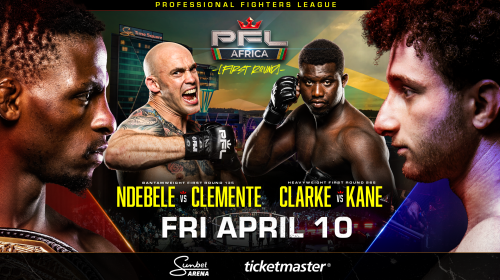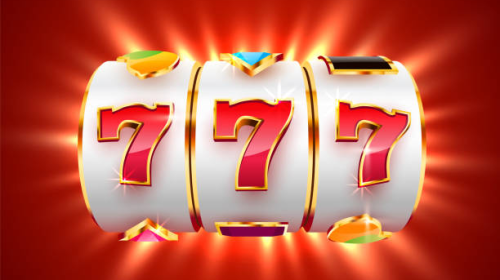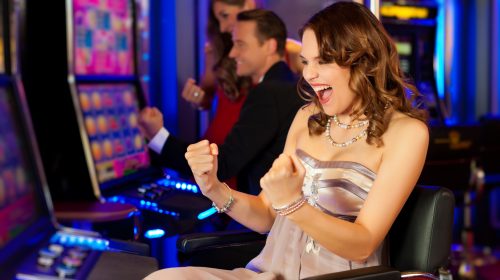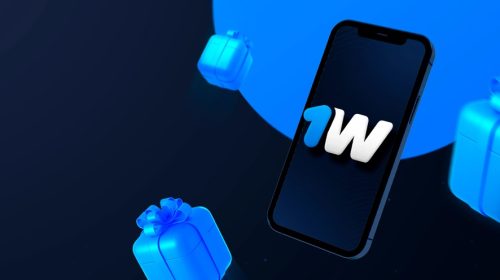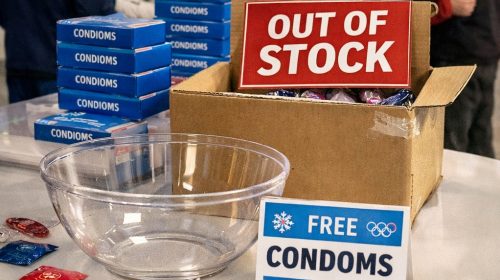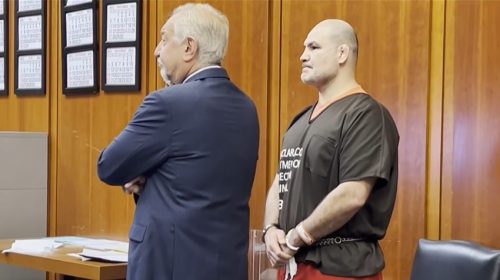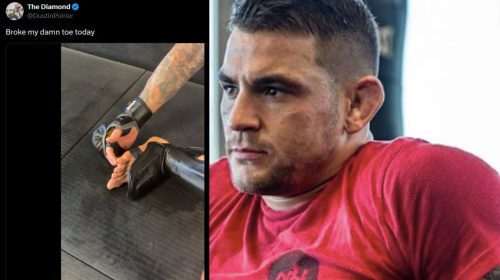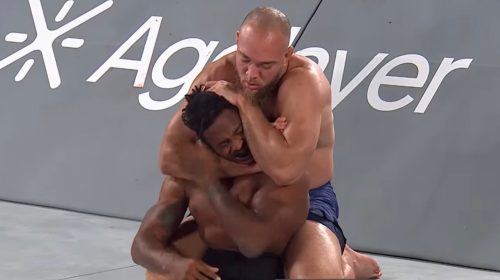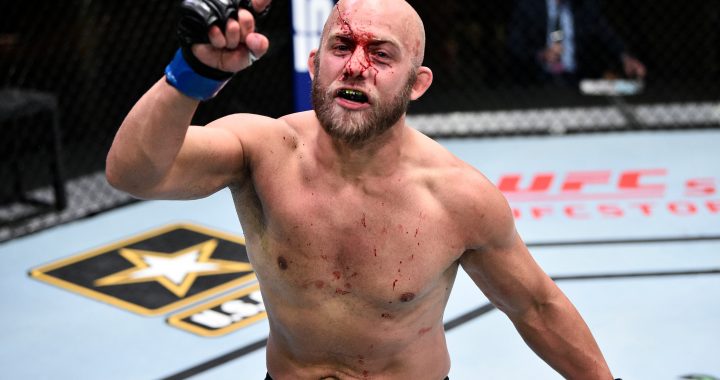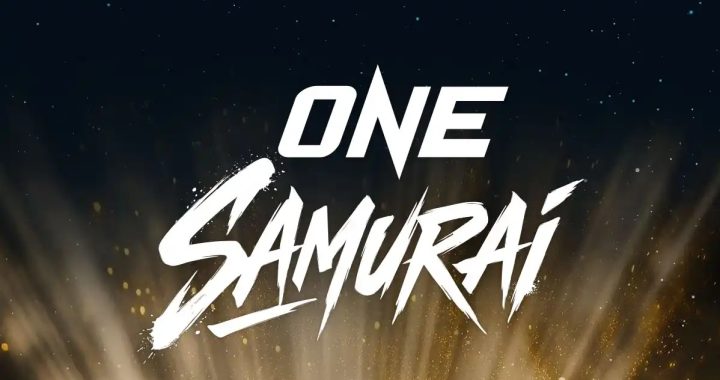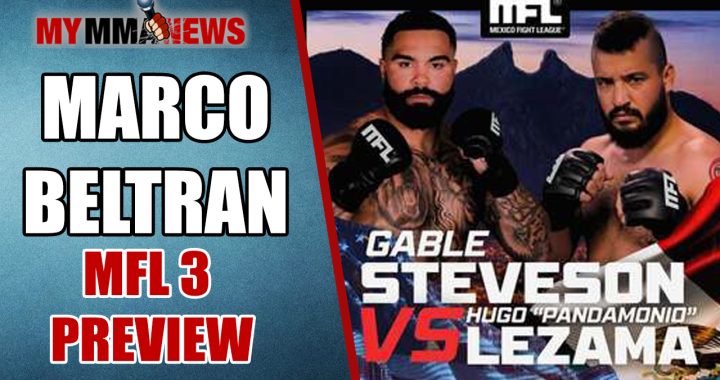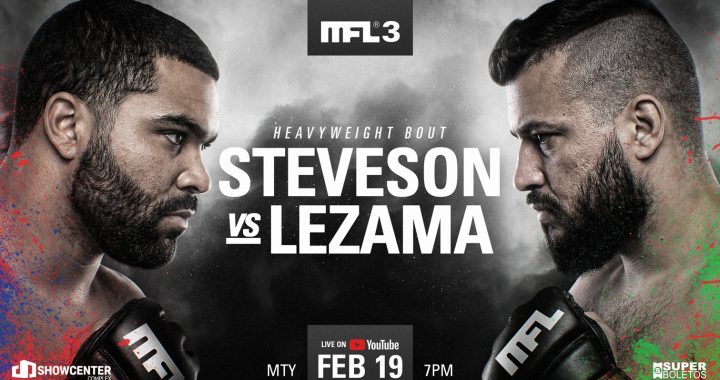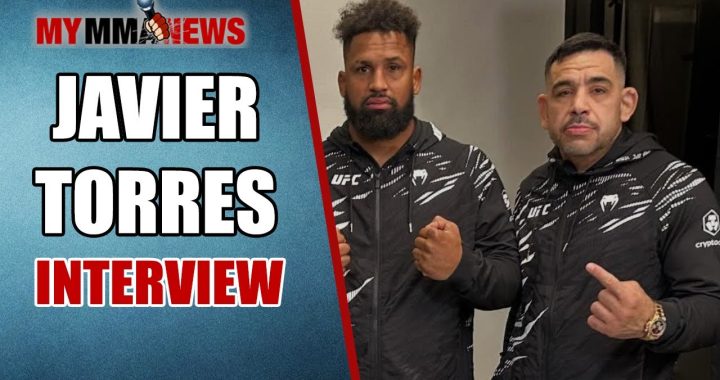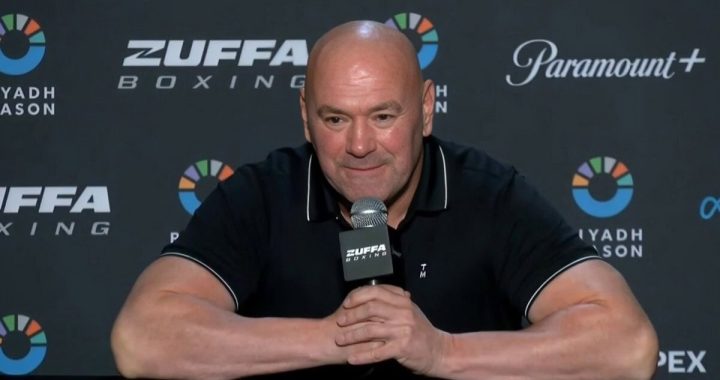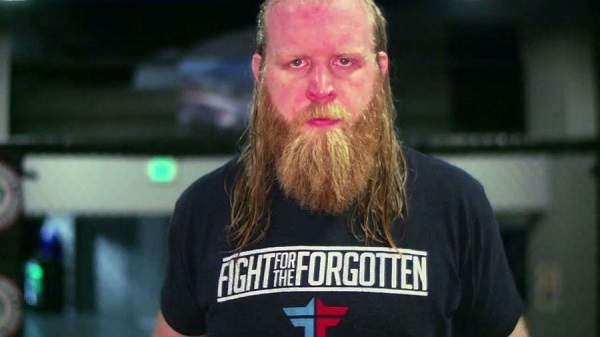
Justin Wren Q&A: Fighting Demons and Finding Faith
Justin Wren is one of the most intriguing personalities in all mixed martial arts. “The Big Pygmy” became well known to MMA fans during the filming of the Ultimate Fighter, but more so for his troubled past with addiction, followed by his volunteer work in less fortunate parts of the world. Wren speaks with Tony Reid of MyMMANews.com.
Tony Reid – You were picked on and bullied growing up and you have said that the first UFC event you saw really changed you. How specifically did combat sports and MMA change you?
Justin Wren – “When I was getting bullied I never stood up for myself or fought back. It was really tough. So much so that I sat at a lunch table by myself. I would get pelted in the back of the head with chocolate milk and spitballs. I was invited to my middle school crushes Birthday party. It was written on the invitation that it was a costume contest. I got there and I would say my crush crushed me when I realized I was the only one that was dressed up. I was told “I can’t believe you thought you were cool enough to come to my party.” This other guy told me I was worthless. And then the guy who was my main tormenter growing up said “You should just kill yourself.” I was struggling. I was clinically diagnosed with depression at 13. I battled suicide thoughts for ten years off and on.”
“When I first found the UFC it was only about two months after that party. I was the laughing stock of the school. Pictures got passed around of me being dumb enough to wear a costume. So when I saw the UFC two things happened. One was that I fell in love with the sport. It was like wow these guys are so disciplined. There are different martial artist. Some of the guys were Olympians. It was such a cool thing putting multiple sports into one sport. It’s like Randy (Couture) said, it’s a human chess match and that’s how I saw it. But I also realized that these guys don’t get bullied. I realized that it wasn’t just because they were big and strong and had muscles and were meatheads but it was because they were smart. They were thinking while they were fighting. I realized anybody could learn that stuff if they were willing to put in the time. I thought that if I didn’t want to get bullied anymore I should learn how to wrestle or learn self-defense or something. That’s where it was birthed from. But at 13 years old I decided I wanted to do that with my life. I knew I wanted to be in there (the Octagon). I wanted to be a UFC fighter. I wanted to be a mixed martial artist for a living.” 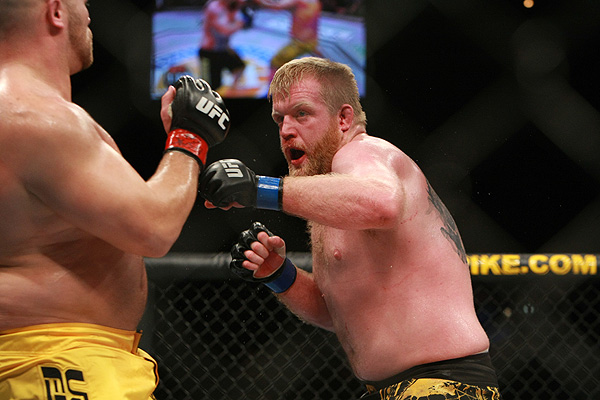
TR – Do you remember what numbered events or which fighters in particular inspired you most as you snuck those tapes back home?
JW – “I bought UFC 2-9 because they didn’t have UFC 1. Someone bought UFC 1. That stinks. I was actually hiding them under my bed. When my dad found the stack of videos under my bed he thought it was a stack of pornos. It was just the UFC. I loved Royce Gracie, Ken Shamrock, Pat Smith, Paul Varelans, Oleg Taktarov, Don Frye and Tank Abbott. The list goes on and on. I was a huge fan of basically everyone. I loved Tank. I was a huge fan of Mark Kerr.”
TR – You have fought many battles outside the cage. Including depression and drug addiction. You were a highly decorated amateur wrester and after state titles, national championships and Olympic dreams you got hurt in the time leading up to a run at Iowa State and Coach Sanderson. You were injured during a match and quickly became addicted to oxycodone. How did that one prescription lead you much further down the road of addiction?
JW – “After I graduated high school I had won two National Championships. Instead of going the NCAA route I went to the Olympic Training Center. During that year off and while living at the training center, that’s when I got injured. I was on the Greco Roman team. I was trying to make a run at 2008, 2012, 2016. I was trying to be one of those Olympic guys. After I got injured and I had surgery I went to live at Iowa State. I was recruited by Cael Sanderson. I was technically a medical redshirt. I was going to the little junior college they have there. I was in line for a full ride scholarship. During that time where I couldn’t compete, I was waiting for surgery, it was that easy. The OxyContin was prescribed to me to hold me over. Hydrocodone didn’t do much, at least that’s what I told them. I wanted something stronger. It’s easy being a combat athlete. Doctors prescribe stuff to you. I didn’t realize at the time but I was abusing the relationships I had with my doctors. I had three different doctors in three different states. One was in Colorado, one was in Texas and one was in Iowa. One would give me 30. One would give me 45 and one would give me 100 at a time. I made sure I went back to those guys every single month. Even the guy that gave me 100 was giving me a three month supply. I was going back to him, saying he was the only guy I was going to and all that stuff. I was abusing it. I was abusing them. I was abusing myself. Then I started piggybacking everything. I would take a few pills or a handful of pills I would have a few shots with it. Then it got to the point to where I was drinking all day long and taking pills all day long. I would wake up, hit my vaporizer and go party and snot cocaine or take shrooms or ecstasy. I would say it was six years of addiction.”
TR – Eventually around that timeframe you started taking local MMA fights to stay active.
JW – “I already loved the sport. I had already been training guys in the wrestling aspect of the sport. If it was a striker or Jiu jitsu guy I would coach them up on wrestling. I had gone down to corner Justin McCorkle and he had a bad staph infection so he wasn’t going to be able to fight. He had to be taken to the hospital. It got so bad they actually thought they might have to amputate. I went to the weigh ins and said that he wasn’t going to be able to fight. The cornermen of his opponent were talking a bunch of trash. The promoter had seen me wrestle. He came up to me and said ‘Justin I can see the steam coming out of your ears. You are steaming. I will give you the chance to knock this guy out tomorrow night.’ I have never fought before. I had never even fought amateur. It that even allowed? The promoter said ‘The good thing about Oklahoma is that there isn’t really a commission. We can give you your first pro fight in a co-main event tomorrow night and shut this guy up.’ I took that fight and won in about a minute and a half. I took him down and ground and pounded him and put him away.
“My second fight was pretty similar. My third fight I was in Iowa. I was just in attendance. I was wearing a nice buttoned down shirt, nice jeans and dress shoes. The promoter walks into the cage and said the other professional heavyweight didn’t show up. He wanted to give the other guy the opportunity to apologize to his fans. He stepped in there and started talking and said if there were any Heavyweights in the crowd that wanted to take the fight he was willing to fight. They were asking guys to stand up and raise their hands if they wanted to fight. I was three beers in. I was only 19 years old but I had a fake ID and a big beard. I ended up chugging my third beer and stood up and raised my hand. I had some shorts and wrestling shoes in the car but I literally had to use an unmolded mouthpiece that someone had in a gym bag. I had to borrow someone else’s jock and cup that already fought that night. I wore it on the outside of mine. It was a sweaty light heavyweight fight that went all three rounds. It was pretty gross. I wouldn’t do that again. That was one of my quickest fights. I think because I wanted out of that cup so bad.”
TR – You fought for the UFC first on The Ultimate Fighter Heavyweights season. You then made your official UFC debut in a loss to Jon Madsen at the TUF Heavyweights Finale. You have shared that by the time you got to the UFC you were a full blown drug addict. Even at what we see as the height of the sport you wondered “is this it?” What were your thoughts when you realized that that indeed might be “it”?
JW – “I had put everything in to becoming that person. From the kid that was bullied and having that childhood dream of being a modern day gladiator and mixed martial artist. Once I got there it didn’t fulfill me. That was all my purpose, my significance, my identity, my value, everything was found in me being a fighter. I had personal struggles as well, being a drug addict. That was taking a huge toll on me. But I also think that with fighting not filling that void in me or give me some sense of real purpose in life that I was doing something to benefit society or the world, I think that elevated my drug addiction a lot. After fighting and winning I don’t ever remember smiling. When I got my hand raised I literally thought ‘Is this it?’ Afterwards it became less and less about winning, I’m a competitor, I have to win, and whenever it didn’t compete me I would turn to the drugs even more. That would replace, fill, hide or numb that void. I had an excuse either way. If I won I was going to celebrate and if I lost I was going to numb myself.”
TR – During your time at Grudge you were using to the point that you got kicked of the team by Trevor Wittman. You spent time hitchhiking and traveling around to the point that you aren’t even sure where you were or what you were doing. But in the end, of that chapter, an interesting thing happened in the parking lot that day. Can you share that story with us?
JW – “Fighting was that dream. It had turned into a nightmare. When I got kicked off the team now my dream or nightmare was taken away from me. I have nothing now. I already feel like nothing but now I have nothing. I got back out to the parking lot. There was a guy that had been trying to get ahold of me. He heard I missed my best friend’s wedding. Not only did I miss the wedding I was supposed to be the best man during a drug binge. I had been hitchhiking. My mom had broken in to my house and found drug paraphernalia everywhere. From pill bottles to OxyContin, Xanax and bongs and vaporizers and all sorts of stuff. He had been trying to reach me so much so that we agreed he had called or texted at least 60 times. I just wouldn’t get back to him. One of the talks Trevor had with me was that if this was such a big problem that maybe I should check myself into a rehab center to fix this problem. When I got to my car I had a voicemail and a text to check my email. When I did I had a retreat that was paid for. I thought it was some sort of drug rehabilitation retreat. Wow. I just got kicked off the team. We were just talking about this. So I called the guy back.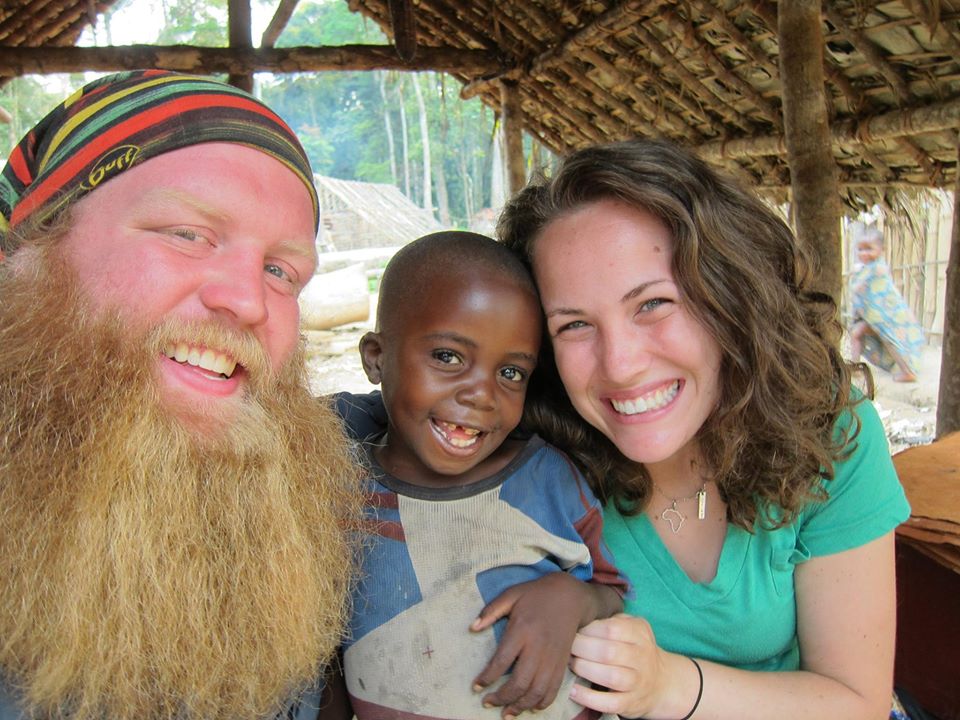
“He said it was going to change my life. He said he was going to go with me. I knew he didn’t have a drug problem. He explained that it was a Christian retreat. I felt duped or tricked. I told him he wasted his money. I told him he should have spent the money on his wife and kids and not on me going on some phony retreat. He asked why I was so hostile and why wouldn’t I give it a chance. I said I needed a real answer to a real problem and that sitting around a campfire holding hands singing kumbaya was not a real answer and it was not going to help me. I told him no. The next day I had a plane ticket. The next day I told him he wasted his money. I had a fight coming up and couldn’t miss the most important week of training. He asked what I needed. I told him I needed a gym! He was training for a half marathon and said he could run with me. I told him I needed to box, to wrestle. The next day one of my great friends Josh Copeland calls me asking who is this guy Jeff Duncan and what is this trip called Quest?
“He said the guy bought the trip for him. This guy is just not taking no for an answer. He really thinks this is going to help me. For some reason I began to feel like he truly cared about me. It wasn’t about him getting credit for it. It wasn’t a weird religious thing. There was something real to it. I decided to go. Eventually I explained it as I found my personal relationship with God and that God loved the hell out of me. The trip changed my life. My heart was set on fire. I have a passion. Before I wouldn’t be known this way but other people now say that I’m a passionate dude. I have a passion for these people. I have a purpose for my life. On that trip I found my passion. I found my purpose and it changed me. If that didn’t happen right then and right there I was going to die. I’m not trying to exaggerate or make it sound more than it is. Everything doesn’t have to be about my faith but it’s an intricate part of who I am and it’s what saved my life. I feel very thankful, humbled and blessed that I have a life and that I live a life for more than me. I live a life for my Pygmy family and I get to share the story with people here. It’s so encouraging that other people are inspired by it and that it makes them want to live a life loving people.”











